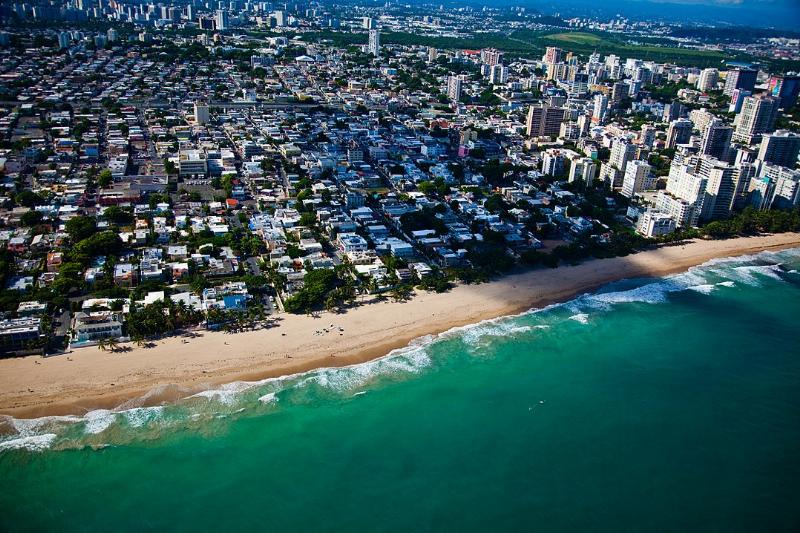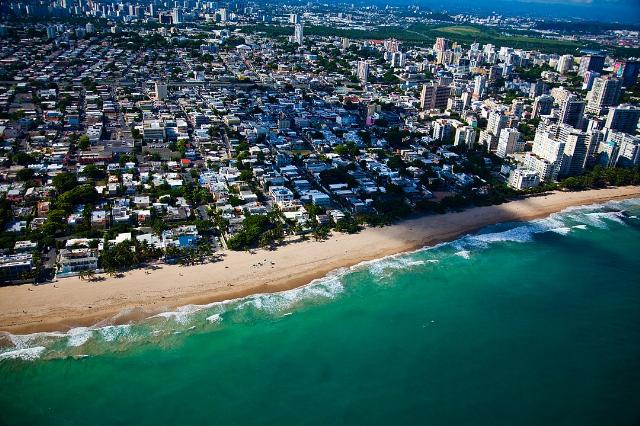


The idea of making Puerto Rico the 51st state has been discussed in Washington for decades, but the facts are clear: statehood is a poor deal for both Puerto Rico and the United States. In today’s political climate, where the “America First” movement promotes cultural unity, limited government, and fiscal responsibility, statehood directly conflicts with those values and principles.

Image by Breezy Baldwin. CC BY 2.0.
A Nation That Will Not Assimilate
Puerto Rico is not an “unincorporated territory” just waiting to join the Union. It is a nation with over 500 years of history, a unique Caribbean-Latin American culture and identity, and a strong dedication to its Spanish language. Despite 127 years under U.S. control, Puerto Ricans have consistently resisted, rejected, and fought against assimilation.
Even the island’s pro-statehood leaders avoid calling themselves “Americans,” preferring to identify as "Puerto Ricans with U.S. citizenship.” U.S. citizenship was imposed on Puerto Ricans in 1917 without their consent, and it has never changed the core Puerto Rican national identity. As the U.S. Code itself states (26 U.S.C. § 2209), Puerto Ricans are considered non-resident aliens for legal purposes at the time of death. Since U.S. law treats us as foreigners when we pass away, isn’t it reasonable not to want to be American while we’re alive?
For an America First movement that truly values a shared language and culture, admitting a Spanish-speaking nation that resists integration makes little sense. Puerto Ricans share far more in common with Dominicans, Cubans, Mexicans, and Spaniards than with residents of Iowa, Alabama, or Kentucky.
Fiscal Burden and Welfare Incentives
Statehood represents not just a cultural time bomb but also a financial risk. Almost 40% of Puerto Ricans rely on federal nutritional assistance (PAN). The ruling New Progressive Party (PNP) openly states that its push for statehood is mainly about securing more welfare and federal funding, rather than aligning with American values. Their slogan, “statehood is for the poor,” encapsulates this intent.
If granted statehood, Puerto Rico would gain access to tens of billions more in federal welfare spending. For American taxpayers already grappling with Washington’s reckless budgets, adding a permanent new welfare state is fiscal madness.
The Myth of a Mandate
Advocates for statehood often claim that Puerto Ricans have “voted” for it. The reality is far different. In the 2024 plebiscite:
A movement supported by fewer than one in five Puerto Ricans is no mandate to annex itself to America. Yet the PNP clings to power through electoral manipulation, changing election laws, blocking opposition coalitions, and using early and prisoner ballots in ways critics say invite fraud. Remove suspicious “special category” ballots (mail-in, home voting, and votes from incarcerated felons) and statehood support drops closer to 15%.
A Growing Independence Movement
While statehood stagnates, support for national sovereignty is on the rise. Sovereignty (combining Independence and free association) now accounts for about 43% and is climbing, especially among younger, educated voters on the island and in the diaspora. Puerto Rico’s national movement has survived decades of political persecution and is gaining momentum.
The truth is clear: Puerto Rico is moving toward self-determination, not annexation.
A Political Trap for the U.S.
For conservatives, admitting Puerto Rico would create an unpredictable, Spanish-speaking state that does not share America’s cultural foundations and would not only lean left politically but also represent a Puerto Rican nationalist agenda that rejects American assimilation and unity. That is precisely why the Republican Party removed support for statehood from its platform in 2024.
MAGA voters understand that a unified, English-speaking American identity is crucial to national strength and unity. Bringing in a territory where residents call the U.S. flag “la pecosa” (the freckled one), Americans are called “gringos,” and where even pro-statehood leaders refuse to assimilate, is a direct contradiction of “America First.”
Colonial Dependency and Corruption
Puerto Rico’s political class thrives on poverty and dependency. The federally imposed fiscal control board, known as the “junta,” has squandered billions on contracts and perks while the island suffers from economic stagnation. Meanwhile, PNP politicians use Washington lobbying and taxpayer-funded theatrics to keep the statehood fantasy alive, even as corruption scandals and FBI investigations mount.
Why should American taxpayers reward a corrupt colonial system that encourages dependency and punishes productivity?
The Logical Solution: Sovereignty
The only path that respects both nations is independence or a free association compact. Puerto Rico can stand as a sovereign nation and a friendly trading partner, similar to the relationships the U.S. enjoys with other Caribbean and Latin American countries, without being a fiscal burden or a cultural flashpoint.
Independence does not mean isolation; instead, it means global connectivity to the world and access to international markets. It means freedom, accountability, and the ability to engage with the world as equals. A sovereign Puerto Rico could negotiate bilateral trade and security agreements with the U.S. while taking full responsibility for its own economic destiny. No more handouts to corrupt colonial politicians; Puerto Rico must be free and stand on its own.
Time for Honest Recognition
Statehood is a fading illusion sustained by political elites and manipulated elections in Puerto Rico. Statehood is not in the national interest of the United States. It lacks broad public support and violates the principles of American cultural unity and limited government that conservatives hold dear.
For those who value America’s cohesion, language, and heritage, the choice is obvious. Do not allow a small minority of Puerto Ricans to force a radical change on the United States that would turn America into a multinational state. Respect Puerto Rico’s distinct nationhood and America’s own integrity by saying no to statehood and yes to an honest, sovereign future.
Javier A. Hernández is a Puerto Rican author, linguist, educator, former federal official, and pro-sovereignty advocate and strategist. He is the author of PREXIT: Forging Puerto Rico’s Path to Sovereignty, The Patriotic History of Puerto Rico for Young Readers, and Puerto Rico: The Economic Case for Sovereignty. He has written extensively on Puerto Rican identity, language, and decolonization. Contact via Linktree: https://linktr.ee/javierahernandez
